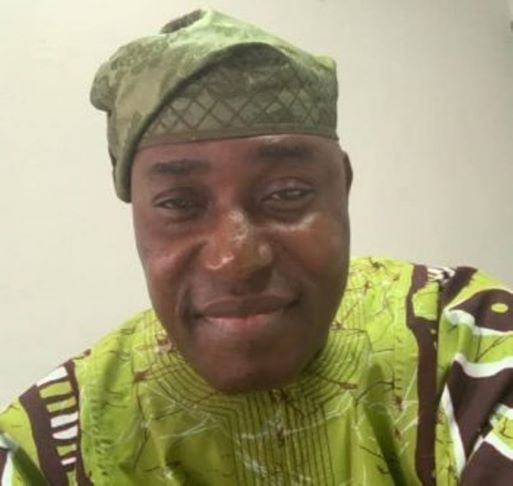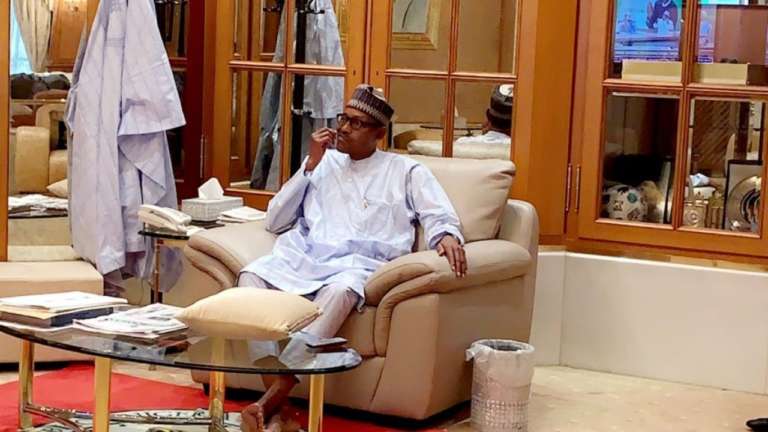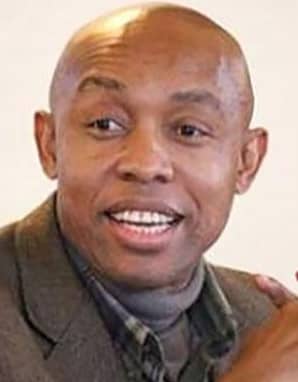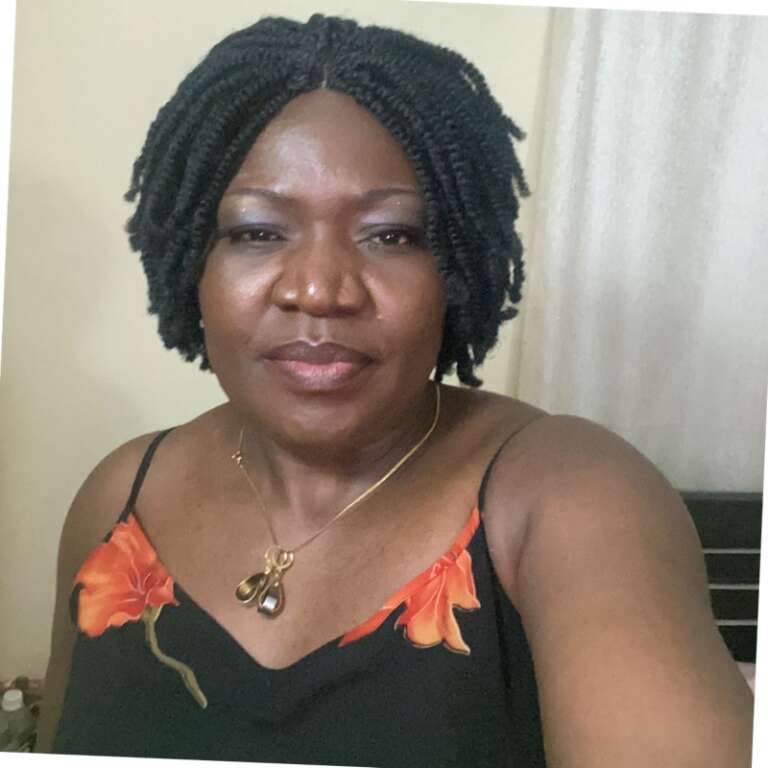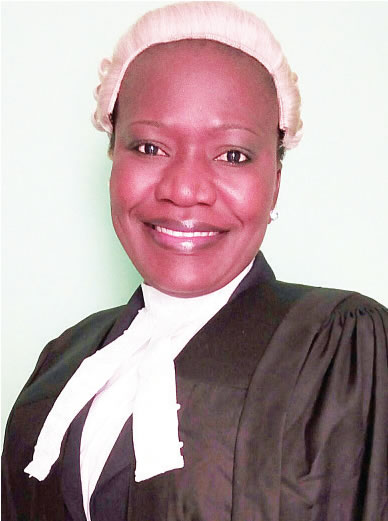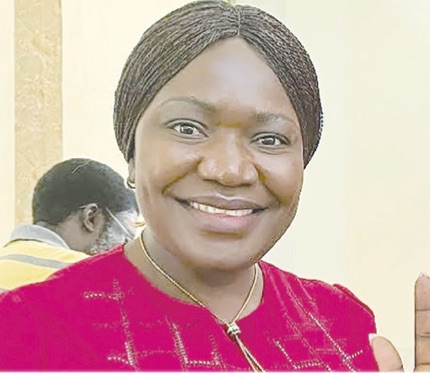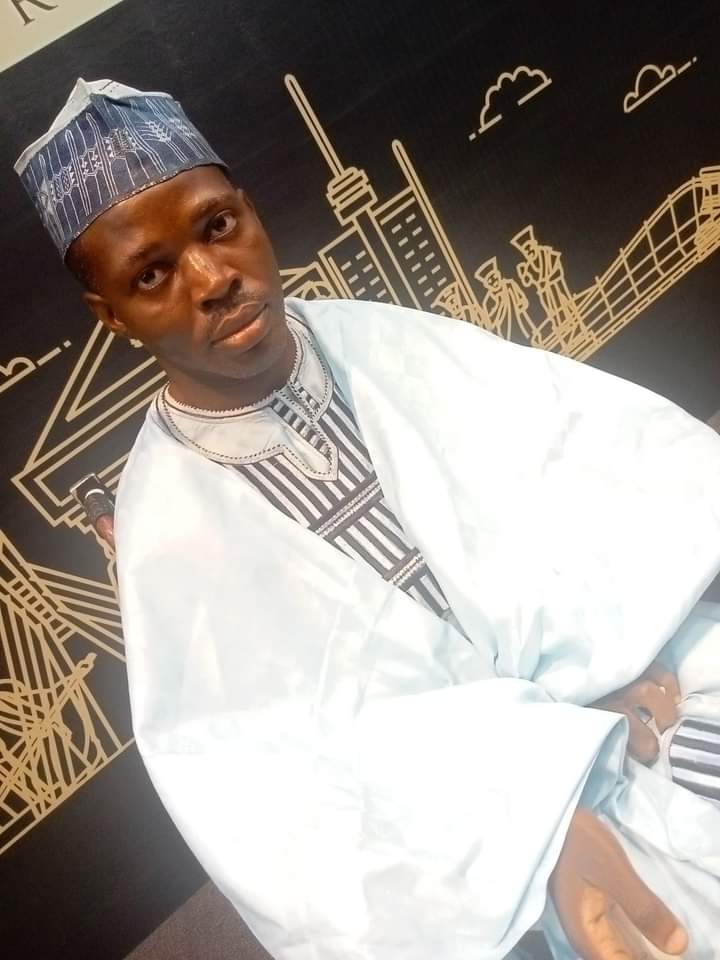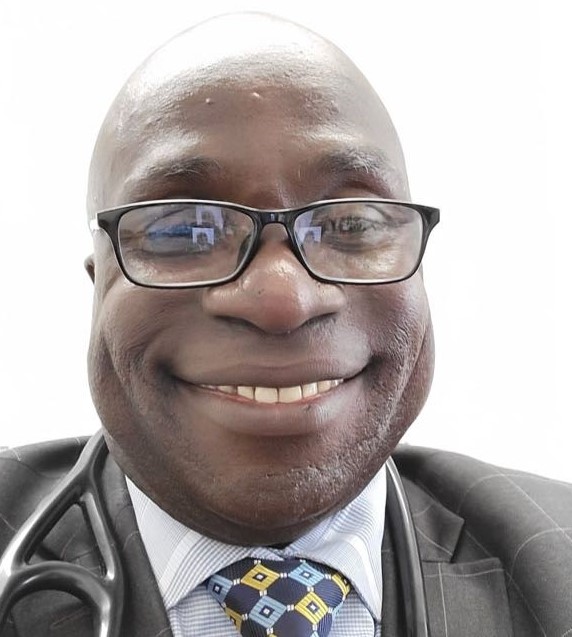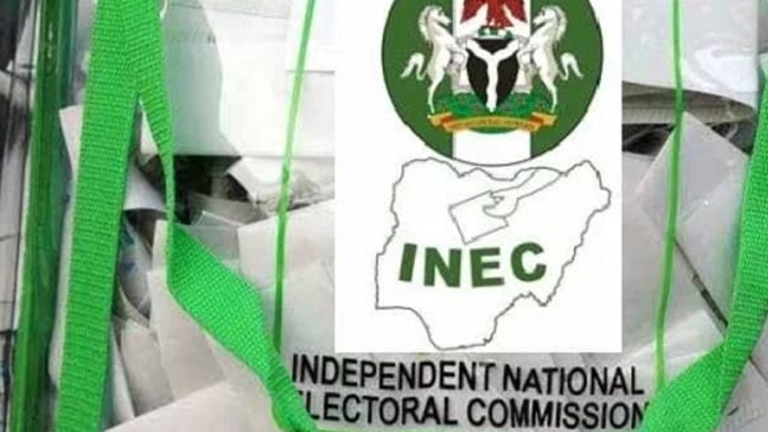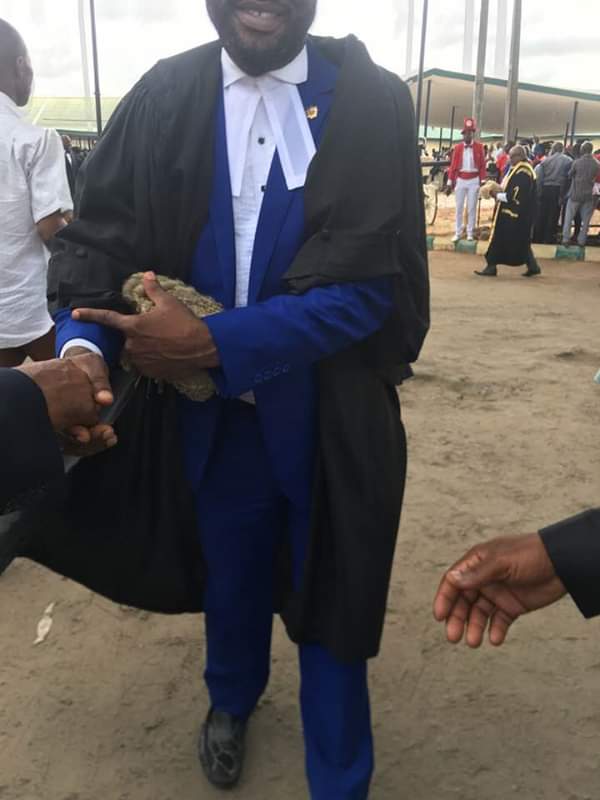By Sylvester Udemezue
- Clauses 48 and 93 of the Regulations and Guidelines on Electronic Transmission
This author is of the view that a combined reading of section 47, 50(2), 60(5) and 64(4)-(8) I of the Act and Clauses 38 and 48(a) of the Regulations and Guidelines appears to show that e-transmission of election results from the polling units is mandatory, not directory.II, and that non-compliance with the requirement may be a ground for nullifying an election conducted under the Act, depending on the extent of non-compliance. However, some writers have relied on the provisions of Clauses 48(c) and 93 of the Regulations and Guidelines to suggest that the requirement is not an indispensable requirement of the the result collation process.III It is hence considered necessary at this juncture to analyze the provisions of Clauses 48(c) and 93 alongside other provisions, to try to see whether real-time electronic transmission of results is mandatory or directory. A provision in a statute is said to be mandatory if the omission to follow it renders the proceeding to which it relates illegal and void, while a provision is said to be directory if its observance is not necessary to the validity of the proceeding. An article by Jim Evans, published by Cambridge University Press under the title “Mandatory And Directory Rules”, explains that “mandatory rules are those procedural rules the breach of which necessarily invalidates the process to which they relate, while directory rules are procedural rules the breach of which does not necessarily have this effect”.IV Clause 48 of the Regulations and Guidelines deal with “Use of Results Electronically Transmitted or Transferred Directly from Polling Units for Collation” while Clause 93 deals with “Collation Where INEC Hard Copy of Results Do Not Exist and Use of Duplicate Hardcopies from Other Agencies”. Clause 48 provide as follows:
- An election result shall only be collated if the Collation Officer ascertains that the number of accredited voters agrees with the number recorded in the BVAS and votes scored by Political Parties on the result sheet is correct and agrees with the result electronically transmitted or transferred directly from the Polling Unit as prescribed in these Regulations and Guidelines. (b) If a Collation or Returning Officer determines that a result from a lower level of collation is not correct, he/she shall use the result electronically transmitted or transferred directly from that lower level to collate and announce the result. (c) if no result has been directly transmitted electronically for a polling unit or any level of collation, the provision of Clause 93 of these Regulations shall be applied.
On its part, Clause 93 provides that “Where the INEC hardcopy of collated results from the immediate lower level of collation does not exist, the Collation Officer shall use electronically transmitted results or results from the IReV portal to continue collation. Where none of these exist, the Collation Officer shall ask for duplicate hardcopies issued by the Commission to the following bodies in the order below: (i) The Nigeria Police Force; and (ii) Agents of Political Parties”
- Summary of Clauses 48 and 93 on E-Collation
For the purpose of the discussions that follows, the provisions of Clauses 48 and 93 are summarized as follows: The e-transmitted version is mandatory for collation at any stage; the veracity and correctness of the manual version (original copies of the result, that is, Form EC8A) must be measured by comparing the same with the e-transmitted version, and in the event of discrepancy, the e-transmitted version must prevail. Where the manual version is not available, the Collation Officer should use only the e-transmitted version for collation. But where both (1) the manual version and (2) the e-transmitted version are not available, the Collation Officer shall call for and use the duplicate copies given to the Police and to the Party Agents (at the polling unit), for collation. Although there is no express provision in Clause 93 for use of original hard copies of the manual version for collation in the absence of the e-transmitted version (since Clause 93 only prescribes that where both are unavailable, the duplicate copies with the Police and the Party Agent may be resorted to for collation) the implication of the last statement (it is submitted) is that where the e-transmitted version is unavailable, but the original hard-copy result sheets are available, the Collation or Retuning officer could resort to using the original hard copies for collation towards declaration and return. It is when the e-version and the original hard copies are unavailable, that resort to the duplicate copies is recommended, by the Regulations and Guidelines.
- Place of Clauses 48(c) and 93 of the Regulations and Guidelines In the face of Provisions of the Act On Mandatory Electronic Transmission
- Doctrine of Covering the Field
Although section 60(5) confers on the INEC power to determine or prescribe the manner of collation of election results, which INEC has done in the Regulations and Guidelines for Conduct of Elections 2022, it appears that the law makers did not want to leave anything to chance,V considering that the main purpose of the annulment of the Electoral Act 2010 and the introduction of the innovative Electoral Act 2022, was to introduce and integrate real-time e-transmission of election results as an indispensable part of the election result collation process, with the primary aim of preventing or reducing allegations or incidents of result manipulation that had hitherto marred the manual collation process, which was the sole method of collation under the old legal regime. Sir Thomas Jefferson’sVI counsel on the dangers of trusting man with absolute power, appears to be instructive here: “In questions of power, let no more be heard of confidence in man, but bind him down from mischief by the chains of the constitution VII…on every question of construction let us carry ourselves back to the time when the Constitution was adopted, recollect the spirit manifested in the debates, and instead of trying what meaning may be squeezed out of the text, or intended against it, conform to the probable one in which it was passed”. Continuing, Jefferson observed that “The two enemies of the people are criminals and government, so let us tie the second down with the chains of the Constitution so the second will not become the legalized version of the first”.VIII It is therefore not surprising that the law makers had proceeded to make special/specific provisions (as is seen in sections 47(3), 64(4)-(8), etc, of the Act) to leave no one in doubt that INEC has no choice than to ensure mandatory real-time e-transmission of election results. A summary of the election result collation procedure in section 64(4)-(8)IX is that (I) collation of results by the Collation or Returning Officer must be done using the e-transmitted results and the manually-collated results, and the correctness or otherwise of the manual version must be determined by comparing it with the e-transmitted version;X (II) during collation, any disputes over results must be resolved using both the e-transmitted version and the manual version.XI (II) in cases of conflicts between the manual version and the e-transmitted version, the latter must prevail;XII (IV) in cases of conflicts or disputed results during collation, the Collation Officer may only announce the results after the satisfactory resolution of the conflicts/disputes using the information in section 64 (6) which must include the e-transmitted results;XIII (V) It could thus be seen, that even without the provisions of Clause 38 of the Regulations and Guidelines,XIV section 64 of the Act has made existence of the e-transmitted version of the results an indispensable part of the collation process and the collation-dispute resolution process; this takes precedence over anything to the contrary in Clauses 48(c) or 93 of the Regulations and Guidelines, to the extent of such inconsistency. PLAC explains further on the necessity of the E-transmitted results:
Electronic transmission of polling unit results to INEC’s collation system is supposed to ensure that INEC has copies of election results from the lowest level of elections (that is polling units), so that in the event of inconsistencies in results or where they are tampered with in the process of physical collation, INEC can have recourse to electronically transmitted results in its collation system. The IReV portal allows the general public to view election results from various polling units as they are uploaded.XV
- Purposive and Mischief Rules to the Rescue
The purposive interpretation is a derivation of mischief rule as set out in Heydon’s Case.XVI Purposivism is an approach to statutory and constitutional interpretation under which courts interpret an enactment (a statute, part of a statute, or a clause, term or word in a statute) within the context of the overall purpose of the said statute. According to this rule,XVII while interpreting statutes, first the problem or mischief that the statute was designed to remedy should be identified and then a construction that would suppress the problem and advance the remedy should be adopted. Heydon’s Case illustrates the Mischief Rule of statutory Interpretation whose main aim is to determine the “mischief and defect” that the statute in question has set out to remedy, and what ruling would “suppress the mischief, and advance the remedy”. Put differently, in applying the mischief rule, the court is always “to make such construction as shall suppress the mischief, and advance the remedy, and to suppress subtle inventions and evasions for continuance of the mischief, and to add force and life to the cure and remedy, according to the true intent of the makers of the Act.”XVIII The mischief rule of interpretation appears applicable, considering the following: (a) the main mischief/lacuna in the previous law (the Electoral Act 2010) is absence of provisions on electronic transmission of results; this had created room for manipulation of manually-collated results by corrupt politicians and compromised INEC officials; (b) the remedy the 2022 Act has provided to cure the defect/mischief in the old law, is the introduction of mandatory e-transmission of results in such a manner as to make it difficult, if not impossible, for anyone to have the opportunity of manipulating election results, after ballot (c) what would become of the mischief and the remedy if the 2022 Act permits any opening by allowing any situation in which e-transmitted results may not be a sine-qua-non in the collation process? Perhaps one could see why the Electoral Act did not leave anything to chance about e-transmission; after authorizing the INEC to have the responsibility of prescribing the manner of collation, the Act still (and wisely so) proceeded to provide a detailed collation procedure, which makes e-transmission indispensable. It is thus seen that section 64 of the Act makes e-transmission mandatory in order that no interpretation of the provisions of the Act and or of the Regulations and Guidelines, or of the Manual, should leave any room for INEC to escape the obligation on e-transmission of records/results from the polling units; else, the Commission, being grossly untrustworthy and unreliable, based on its past conducts, may or may be influenced, to adduce reasons XIX to evade e-transmission or to justify its intentional refusal or faulire to e-transmit, a situation which might end up dragging us back to the Egypt we are coming from, by encouraging procedures that make it possible for election results to be manipulated or for allegations of manipulation to proliferate. In summary, section 64 (4)-(8) of the Act has prescbribed a mandatory procedure for collation of election results. Clauses 38,48, 92 and 93 of the Regulations and Guidelines have prescribed a procedure for collation. Accordingly, it appears that Clauses 48(c) and 93 which create room for dispensing with e-transmission must be interpreted subject to the provisions of sections 47(3) and 64 of the Act which leave no room under any circumstances, for dispensing with e-transmission.
- The Generalia Specialibus Non Derogant Rule XX
This rule of statutory interpretation, which states that general provisions in a statute must yield to special or specific provisions in the same statute,XXI appears relevant here. When a matter falls under any specific provision, then it must be governed by that provision and not by any general provision in the same statute. General provisions in a law must admit or submit to specific provisions in the same law, on the same subject. The reason offered by the courts in support of this principle of interpretation is that the legislature, having had its attention directed to a special subject, and having observed all the circumstances of the case and provided for them, does not intend by a any general enactment or provision to derogate from its own act when it makes no special mention of its intention so to do. Thus, the position is that special provisions in a statute will not be affected by general provisions therein, although inconsistent with the special, and although they deal with the same subject matter.XXII The provisions of the section 60(5) of the Act conferring powers on INEC to prescribe the mode of election result collation is a general provision while section 60(4)-(8) specifically and specially prescribes the procedure for collation and for resolution of disputed results during collation, to include as a matter of necessity e-transmitted version of election results. The provisions of section 60(5) (and all Regulations and Guidelines made thereunder, including Clauses 48(c) & 93) must be applied subject to those of section 64(4)-(8). It is submitted that Clause 93 of the Regulations and Guidelines cannot be relied upon to escape the obligation imposed upon INEC under section 64 of the Act, to ensure e-collation in addition to the manual collation.
- INEC’s Own Understanding/Interpretation of the Extant Law On E-Transmission
The INEC appears to agree that taking all provisions of the extant law on the subject into consideration, electronic transmission of results is a mandatory part of the election, election result collation and collation-dispute processes. The Commission has thus taken time to explain in detail, the process of result collation under the new legal regime. The Commission writes on its website:XXIII
One of the most progressive provisions of the Electoral Act 2022 is the provision for result management from the Polling Units (PUs) to various levels of collation and declaration of winners. The process, as provided by the Act, is basically still manual involving the recording of results on forms (as determined by the Commission) and their delivery to various levels of collation until declaration and return are made. However, the law also provides for electronic transmission of results. In the event of a dispute arising in the course of collation, the electronically-transmitted result shall be used to resolve it. These are clearly provided for in Sec. 60 of the Act which deals with the counting of votes, their entry into specific forms endorsed by INEC officials and candidates/polling agents and their transfer to collation centres. Furthermore, Sec. 64 (4), (5) and (6) of the Act provides for the recording and transmission of accreditation data and election results directly from the PUs using the Smart Card Reader or any other electronic device determined by the Commission … the law provides for a dual mode. The first mode is the 4-step manual procedure at PUs involving: (1) Counting of ballot papers; (2) Recording of results on specific form (EC8A); (3). Endorsement of EC8A by candidates/polling agents; and (4) physical delivery to collation centres. The second mode entails a 2-step electronic procedure from PUs involving: (1) Recording of accreditation data; and (2) Direct transmission of results…. After an election and the completion of results management procedure at the PU, the Presiding Officer should take the following action (1). Transmit a clear image of EC8A for purposes of collation. This goes to the IReV; and (2). Deliver by hand, the hard copy of EC8A and the BVAS to the Registration Area (RA) Collation Officer. 2.The Collation Officer, with the support of the RATECH, should have access to IReV. The result held temporarily as part of IReV and the number of accredited voters in the BVAs should be compared with what is recorded in the manually-delivered result to effect collation (Sec. 64[4] and [5] of the Electoral Act 2022). The IReV result or the scanned image of the EC8A from the BVAS should also be used in case any issue arises during collation and there is need to resolve any dispute regarding the results (Sec. 64[6]), following the procedure provided in the clause 93(a) of the Commission’s Regulations and Guidelines for Elections, 2022. 3.The same scenario should be implemented from one level of collation to a higher one until the result is declared and a return is made 4. This approach integrates the IReV images into the collation process to satisfy the electronic (direct) transmission of results.
INEC had on February 07, 2023 published on its verified Twitter handle, a statement that “The use of the BVAS for voter verification and authentication is a mandatory provision of section 47(2) of the Electoral Act and every registered voter must undergo the process of accreditation. The Commission will also upload polling unit-level results (Form EC8A) and the accreditation data to the INEC Result Viewing Portal. This is also a mandatory provision of sections 50, 60, and 64 of the Electoral Act 2022. For the 2023 general elections, the Commission will recruit 707,384 Presiding Officers and Assistant Presiding Officers, about 17,685 Supervisory Presiding Officers, 9,620 Collation/Returning Officers as well as 530,538 PU Security Officials, making a total of 1,265,227”.XXIV Further, on October 26, 2022, during INEC’s quarterly meeting with political parties for the year 2022, in Abuja, the INEC Chairman, Mahmood Yakubu had declared that “…there is no going back on the deployment of the Bimodal Voter Accreditation System (BVAS) for voter accreditation. There is no going back on the transmission of results to the INEC Result Viewing Portal (IReV) in real-time on Election Day. There will be no Incident Form that enables ineligible persons to vote using other people’s Permanent Voters Cards (PVCs) during elections. We are committed to ensuring that the 2023 General Election is transparent and credible, reflecting the will of the Nigerian people”.XXV And, speaking at a meeting with leaders of foreign election observers on 22 February 2023, a few days before the presidential and national assembly elections in Nigeria, the Chairman of the INEC, Prof. Mahmood Yakubu had explained the mode of voter accreditation and result transmission chosen by INEC pursuant to the Electoral Act 2022, saying “The BVAS confirms that the cards issued by the commission and presented by the voter are genuine and the voter is authenticated using the fingerprint and where it failed, the facial. Where both fail, the voter can’t vote. That is a matter of law. After the process is completed at the polling unit, the image of the polling unit result will be taken by the BVAS and uploaded into what we call the INEC Result Viewing Portal where citizens can see polling unit level results as the processes are completed at polling unit level”.XXVI
- Position of the Courts on E-transmission of Results
The courts appear to have affirmed that direct real-time e-transmission of election results is mandatory. In a judgement delivered on 17 March 2023, Hon Justice Egwuatu of the Federal High Court of Nigeria, Abuja Division, granted an order of Mandamus compelling INEC, its servants, agents, privies, and any person acting under their directions to: (a). Comply with and enforce the provision of clause 37 of the Regulations and Guidelines for the Conduct of Elections 2022 for the conduct of the governorship and houses of assembly elections in Akwa Ibom State on the 18th of March, 2023 to wit: mandating the presiding officer of all polling units to paste the publication of result poster EC60 (E) at the polling units conspicuously after completing the EC8A result sheet. (b). Comply with and enforce the provision of clause 38 of the Regulations and Guidelines for the conduct of Elections 2022 for the conduct of governorships and houses of assembly elections in Akwa Ibom State on the 18th of March, 2023, mandating the presiding officer of all polling units to electronically transmit or transfer the results of the polling units direct to the collation system and use the Bimodal Voter Accreditation System (BVAS) to upload a scanned copy of the EC8A to the respondent’s (INEc’s) Result Viewing Portal (IReV) immediately after the completion of all the polling units’ voting and results procedures.XXVII A mandamus, in law, is basically an order of a court of law, a judicial writ, issued as a command to an inferior court or ordering a person or public body or official to perform a public or statutory duty. For example, an application for a court order to compel INEC to perform a certain statutory duty/obligation is an application for an order of writ of mandamus. In Fawehinmi v. IGP, XXVIII the Supreme Court said that “The prerogative writ of mandamus is issued or ordered by the Courts to secure or enforce the performance of a public duty. It is pre-eminently a discretionary power and the Courts will decline to award it if other legal remedies are available and effective. An Applicant for the grant of the order must show that he has sufficient legal interest to protect and that he has demanded the performance of the public duty from those obliged to do so and was refused”. In Ohakim v. Agbaso,XXVIX the Supreme Court, ruling on the meaning of mandamus, held that “Mandamus is an order issued by a court of law, usually the High Court, to compel the performance of a public duty in which the person applying for same has sufficient legal interest. An order of mandamus only issues to a person or corporation, requiring him or them to do some particular thing therein specified which appertains to his or their office, and is in the nature of public duty…”. In unreported suit FHC/L/CS/370/2023 filed by Labour Party, its governorship candidate, Gbadebo Rhodes-Vivour, and 37 others, the plaintiffs had sought, among other relief, “A declaration that the defendant and its agents and their privies or any persons acting under their directions are bound to comply with and enforce the provision of clause 38 of the regulations and guidelines for the conduct of elections, 2022 for the conduct of the governorship and House of Assembly elections in Lagos State on March 11, 2023, to wit: Mandating the presiding officer of all polling units to transmit or transfer the result of the polling units electronically, direct to the collation system and use the Bimodal Voter Accreditation System (BVAS) to upload a scanned copy of the EC8A to INEC Result Viewing Portal (IReV) immediately after the completion of all the polling units’ voting and results procedures”. ChannelsTV was to report on 08 March 2023, as follows, regarding the lawsuit:
The Federal High Court sitting in Lagos has ordered the Independent National Electoral Commission (INEC) to directly and electronically upload the results of the March 11, 2023 governorship and State House of Assembly elections in Lagos State from the polling units to the INEC Result Viewing Portal (IReV). Justice Peter Lifu granted the order while delivering judgment in a suit filed by the Labour Party and 41 others, in which they sought an order of Mandamus to compel INEC to obey the Electoral Act and its guidelines for the conduct of the elections. The court, therefore…granted an order of mandamus directing and compelling the defendant and all its agents and their privies or any persons acting under their directions to comply with and enforce the provision of clause 38 of the REGULATIONS AND GUIDELINES FOR THE CONDUCT OF ELECTIONS, 2022 for the conduct of the Governorship and House of Assembly elections in Lagos State on 11 March 2023 to wit: mandating the presiding officer of all polling units to transmit or transfer the result of the polling units electronically, direct to the collation system and use the Bimodal Voter Accreditation System (BVAS) to upload a scanned copy of the EC8A to INEC Result Viewing Portal (IReV) immediately after the completion of all the polling units voting and results procedures.XXX
Finally on this, the Nigerian Court of Appeal judgment in Adeleke Nurudeen v Oyetola,XXXI delivered on 24 March 2023, his Lordship Hon Justice Shuaibu, JCA tried to explain the provisions of the Electoral Act 2022, on e-transmission of results, and the material time for transmission. Hear His Lordship:XXXII
BVAS is a device used to register voters. It accredits voters before voting on election day and is used for transmitting results to the INEC viewing portal after voting. Thus it helps to scan the barcode or QR on the PVC or voter register before voting. Note that BVAS does not require internet connectivity during voting but it requires internet when transmitting results to the INEC portal. In light of the foregoing, it is correct to say that there is a dual mode of transmission of results under the extant Electoral Act, 2022. After the close of the poll at the level of various units where the presiding officer would enter the scores of various political parties in Form EC8A (Polling Unit Result) in which he signs that particular result and counter-signed by party agents, the result will then be scanned and uploaded to the INEC result viewing portal for public viewing. It’s also at that point the accreditation data that has arisen from that polling unit will also be uploaded, but the physical result, the BVAS result will also be taken to the Registration Area Collation Centre. At the Collation Centre, the Collation Officer will at this point have the benefit of seeing the original result and BVAS report and the accreditation data as transmitted and the result sheet from the polling unit.
- Relevance of Parliamentary/Legislative Supremacy
Parliamentary/Legislative Supremacy as a constitutional law concept, postulates that the legislature possesses absolute sovereignty XXXIII to make laws and that for this purpose, the legislature is supreme over all other government institutions, including the executive and the judiciary. It also holds that the legislature reserves the right or discretion to make law, change or repeal any previous legislation as it may deem necessary and that (for purposes of law-making), the legislature is not bound to adopt the format or content in any written law or precedent.XXXIV The Regulations and Guidelines was made by INEC and executive body pursuant to powers given to it by an Act of parliament. The Electoral Act was made by the Parliament. The application of the concept of legislative supremacy is that where any segment of the Regulations and Guidelines is found to be inconsistent with a provision or the import of a provision of the Act, the latter must prevail. Thus, in presenting Clauses 48(c) and 93 of the Regulations and Guidelines as a guide for reliance on manual collation in the absence of the e-transmitted version of results, one must ensure to call one’s attention to the legal import of the superior provisions of section 64(4)-(8) of the Electoral Act which leave no one in doubt about the necessity of the e-transmitted version in the entire collation process.XXXV Thus, if one thinks that Clauses 48(c) and 93 of the Regulations and Guidelines envisage a situation in which both the e-transmitted version and the manually-collated version may be absent or non-existent, then it is respectfully submitted that Clause 93 is inconsistent with the provisions of section 64(4)-(8) of the Electoral Act which clearly does not envisage any situation in which the e-transmitted version may be absent or non-existent. The steps and procedures provided for in sections 47 and 64(4)-(8) of the Act presuppose that e-transmission is indispensable; the effectiveness of each of the steps contained therein is hinged on the assumption that the results have already been transmitted or transferred electronically from the polling unit. It is perhaps in a bid to ensure that technology is unfailingly used for the election (for purposes of ensuring transparency an promoting credibility), that the Act in section 47(3) provides that where the card reader or other technological device deployed for the election fails to work and no alternative has been provided, INEC should reschedule the election to ensure technology is used. It would therefore be a negation of the intentions of the Act to give or allow any interpretation of the provisions of Clause 48(c) or 93 of the Regulations and Guidelines, which tends to deviate from this intention of the Act. This is why the provisions of Clauses 48(c) and 93 must give way to the provisions of section 64(4)-(8) of the Act, to the extent of the inconsistency. However, there appears to be one instance which may probably justify/excuse failure of e-transmission, and recourse to the procedure in Clauses 48(c) and 93 of the Regulations and Guidelines, is where the results manually collated are not disputed at any stage of the collation process. Thus, even though e-transmission is mandatory under the Act, yet, where the results are not disputed by any candidates/parties (in which case, all parties and their candidates are in agreement about the version of the results collated manually, and there are no allegations of manipulation), then it would be unreasonable to rely on non-compliance with the provision for mandatory e-transmission to invalidate the results of the elections affected. This is because, it must not be forgotten, that the whole purpose of the provisions for mandatory e-transmission is to prevent election result manipulation and other forms of collation fraud during the ballot and post-ballot processes. This being the case, why should the INEC or a court of law invalidate election results that are not disputed on the grounds only that the same was not e-transmitted?
NOTE:
The above discussion is culled from a paper titled, “Legal Safeguards for Credible Management of Post-Ballot Processes In Nigerian Elections Under the Electoral Act 2022”, By Sylvester Udemezue, Available at SSRN: https://ssrn.com/abstract=4393989 or http://dx.doi.org/10.2139/ssrn.4393989.
END-NOTES:
—————————
*Sylvester Udemezue is a Lawyer and Law Teacher in Nigeria, and can be reached on 08039136749 (phone/WhatsApp) and [email protected] (email).
—
- These provisions are reproduced and discussed in detail later in this work
- See: (1) Sylvester C. Udemezue, ‘Direct E-Transmission Of Election Results From The Polling Units Is Mandatory, Not Directory, Under Nigeria’s Election Laws; Non-Compliance May Be Considered Fundamental, Fatal.’ (TheNigeriaLawyer 28 February 2023) <https://thenigerialawyer.com/direct-e-transmission-of-election-results-from-the-polling-units-is-mandatory-not-directory-under-nigerias-election-laws-non-compliance-may-be-considered-fundamental-fatal/> accessed 19 March 2023; and (2) Sylvester C. Udemezue, ‘ Nigeria’s Presidential Election 2023 And Legal Consequences Of An Ugly Subversion Of Beautiful Laws [Part 2]’ ( TheNigeriaLawyer 13 march 2023) < https://thenigerialawyer.com/nigerias-presidential-election-2023-and-legal-consequences-of-an-ugly-subversion-of-beautiful-laws-part-2/> accessed 19 March 2023
- Kunle Edun, ‘Much Ado About Transmitting Results Via The Bvas’ (Law Parlianment 20 March 2023) < https://triplenet.com.ng/lawparliament/law_body.php?MUCH_ADO_ABOUT_TRANSMITTING_RESULTS_VIA_THE_BVAS&myId=3684&myView=0> accessed 20 March 2023
- Jim Evans, ‘Mandatory and Directory Rules’ (Canbridge University Press 02 January 2018) < https://www.cambridge.org/core/journals/legal-studies/article/abs/mandatory-and-directory-rules/70E6CBF84A2FA2E883829D371D2AF805> accessed 18 March 2023.
- Especially considering that power corrupts and aabsolute power corrupts absolutely
- a founding father and third President of the United States of America
- Fred Barbash, ‘ Ted Cruz’s favorite Thomas Jefferson quote and the message it sends’ (Washington Post 30 March 2015) < https://www.washingtonpost.com/news/morning-mix/wp/2015/03/30/ted-cruzs-curious-choice-of-thomas-jeffersons-words/> accessed 20 March 2023
- ThOmas Jefferson Foundation, ‘Research & Education Thomas Jefferson Encyclopedia ‘ (Monticello 1987) < https://www.monticello.org/research-education/thomas-jefferson-encyclopedia/two-enemies-people-are-criminals-and-governmentspurious-quotation/> accessed 20 March 2023
- which is superior to the Regulations and Guidelines, the latter being a subsidiary law
- See section 64(4)&(5) of the Act
- See section 64(6)&(7)
- See section 64(5),(7)&(8)
- see section 64(6)(d) & (8)
- Which expressly include e-transmission as a mandatory as an mandatory part of collation
- The Independent National Electoral Commission (INEC) on 3 June 2022 released the Regulations and Guidelines for the Conduct of Elections, 2022. The Regulations and Guidelines were issued pursuant to Section 149 of the Electoral Act, 2022 and the Regulations and Guidelines supersede all previous regulations and/or guidelines on the conduct of elections, issued by the INEC. The new Regulations and Guidelines cover elections and arrangements for their conduct, accreditation and voting procedure at elections, and collation of election results and making returns.They apply to the conduct of elections to offices of: “President and Vice President; Governor and Deputy Governor; National Assembly (Senate and House of Representatives); State Houses of Assembly; Chairmen and Vice-Chairmen of the Federal Capital Territory (FCT) Area Councils; and Councillors of FCT Area Councils Legislature.” See: Public and Legal Advocacy Centre, ‘PLAC PUBLICATION: SIMPLIFIED ELECTORAL ACT 2022, AND INEC GUIDELINES’ (Placng.org 22 July 2022) <https://placng.org/i/wp-content/uploads/2023/02/Simplified-Electoral-Act-2022-INEC-Guidelines.pdf> accessed 20 March 2023
- Heydon’s Case (1584) 76 ER 637 is considered a landmark case: it was the first case to use what would come to be called the mischief rule of statutory interpretation.
- See: Sylvester Udemezue, ‘ Ikeja Branch Elections, NBA NEC Resolutions And The Concept Of Non-Retroactivity: A Detached Delineation Of Section 6(3) Of The Uniform Bye-Law’ (DNLLegalAndStyle 21 September 2020) accessed 20 March 2023
- See“Mischief Rule” (Wikipedia June 10, 2020) <https://en.wikipedia.org/wiki/Mischief_rule> accessed 20, 2023”
- However flimsy or frivolous
- generalia specialibus non derogant
- See DORE V. VERDOM [1997] 2 SCR 862.
- See LALONDE V. SUN LIFE [1992] 3 SCR 261; IBORI V OGBORU (2004) 15, NWLR (PT 895) 154; In AKINDOLIRE V. AKINDOLIRE (1977) 1 FCAR, 148
- Independent National Electoral Commission (INEC), ‘2023 General Election Updates \”ELECTRONIC TRANSMISSION & COLLATION OF RESULTS\”‘ (INEC Nigeria 2022) <https://main.inecnigeria.org/?page_id=11312> accessed 20 March 2023
- See <https://twitter.com/inecnigeria/status/1622829482540146688?lang=en> accessed 20 March 2023
- See: “2023: No Going Back On Electronic Transmission Of Results, INEC Reassures” (Channels TV, 26 October 2022) <https://www.channelstv.com/2022/10/26/election-results-will-be-electronically-transmitted-in-real-time-inec-assures/> accessed 20 March 2023.
- See: “How Election Figures Will Be Transmitted —INEC” [The Punch; 22 February 2023) <https://www.google.com/amp/s/punchng.com/how-election-figures-will-be-transmitted-inec/%3famp> accessed 20 March 2023.
- See: Shola Soyele, ‘ Court Orders INEC To Electronically Transmit Guber, Assembly Election Results’ (channelstv 17 March 2023) <https://www.channelstv.com/2023/03/17/court-orders-inec-to-electronically-transmit-results/> accessed 18 March 2023. See alsoOYINDAMOLA OLUBAJO , ‘ Court orders INEC to upload results of Lagos governorship election from polling units on March 11’ (Peoples Gazette 03 march 2023) < https://gazettengr.com/court-orders-inec-to-upload-results-of-lagos-governorship-election-from-polling-units-on-march-11/> accessed 20 March 2023
- [2002] 7 NWLR (Pt. 767) @ pp. 697-698, paras. H-A
- [2010] 19 NWLR (Pt. 1226) @ Pp. 227-228, paras. F-A
- ‘ Lagos Gov Poll: Court Orders INEC To Upload Results From Polling Units To IReV’ (ChannelsTV 08 March 2023) < https://www.google.com/amp/s/www.channelstv.com/2023/03/08/lagos-gov-poll-court-orders-inec-to-upload-results-from-polling-units-to-irev/amp/> accessed 20 March 2023
- Unreported Appeal No: CA/AK/EPT/GOV/01/2023, delivered on 24 March 2023.
- on pages 35-36 of the CTC of the judgement.
- However, Legislative sovereignty is subject to certain restrictions. First is the doctrine of separation of powers which limits the legislature’s scope often to general law-making (for example, every Bill made by the legislature requires executive assent before it can become law, although there is the legislative power of veto, in Nigeria, for example, under section 58 (5) of the Nigerian Constitution of the Federal Republic of Nigeria, 1999, as amended), and second, judicial review, where laws passed by the legislature may be declared invalid in certain circumstances by the courts.
- See: Sylvester C. Udemezue, “Place of Internal and External Aids to Statutory Interpretation in the Light of Legitimateness of Jurisdictive Discretion” (2021) 5 IMSU Journal of International Law and Jurisprudence (IJILJ) 48 (Imo State University). <https://www.semanticscholar.org/paper/Role-of-Internal-and-External-Aids-in-Statutory-A-Udemezue/2a1cb4f1f872da82140420cc0a308d65f5900d57>
- Sylvester Udemezue Op Cit (n. ii)
———

